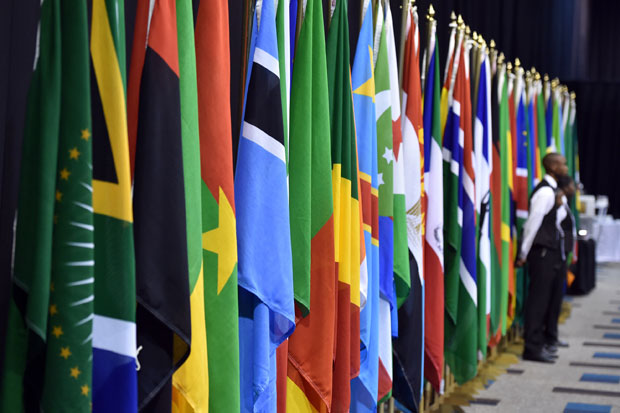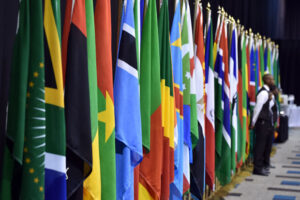Uniting Africa: visa-free travel and the future of Pan-Africanism
Elysha Din writes about the impact of visa free travel on pan-Africanism.

Image credit: GovernmentZA
In 1984-85, The Berlin Conference carved up the African continent with rulers and red lines, ignoring the complex ethnic, linguistic and cultural landscapes that had existed for centuries. Today, these borders affect political stability, ethnic tensions and intra-African trade. So, while European colonialism in Africa ended decades ago, the continent remains divided by colonial borders.
Before stepping down on January 6, outgoing Ghanaian President Nana Afuko-Addo announced a policy that approves visa-free travel in Ghana for all African passport holders. “This is the next logical step to the African Continental Free Trade Area (AfCFTA) and the workings of the largest trading block in the world”, he says (WION, 2025). Ghana already offered visa-free travel to 26 African countries, but the new ruling allows for easier business travel, investment and tourism. For now, this visa extension does not apply to employment within Ghana.
This policy makes Ghana the fifth African country to offer visa-free travel for all African passport holders. The others are Rwanda, Seychelles, The Gambia and Benin, with Kenya following close behind. On January 21 2025, the requirement for an ETA (electronic travel authorisation), which many criticised for being a “visa under another name”, was dropped for most African countries. Somalia and Libya are excluded due to “security concerns” (BBC News, 2025).
According to Afuko-Addo, “visa-free travel within the continent has long been an aspiration for promoting Pan-African values and is seen as vital for economic cooperation” (WION, 2025).
Defined by the African Union (AU), Pan-Africanism is the “necessary philosophy around which all people of African descent should unite to develop strategies against racial injustice, inequality and ending colonialism in Africa” (African Union, 2025). Organised by Henry Sylvester Williams, the first Pan-African conference took place in the early 1900s. Proceeding this, W.E.B Du Bois organised a series of Pan-African congresses to keep the cause alive. The global movement advocates for the unity, solidarity and empowerment of African nations, seeking to dismantle colonial legacies and revive African identity and pride.
The declaration of the fifth Pan-African congress “urged colonial and subject peoples of the world to unite and assert their rights to reject those seeking to control their destinies” (African Union, 2025).
Independence from colonial powers was top priority. The twentieth century saw all African nations gain independence, the last country to shed colonial rule being Zimbabwe in 1980.
But freedom goes beyond a flag and a national anthem. Borders drawn by colonial powers (during the Berlin Conference of 1884-85) continue to divide the African population, inhibiting stronger economic cooperation, good governance and control over resources. Despite the end of colonial rule in Africa, Pan-African liberation is far from achieved.
The African Union (AU) has implemented Agenda2063, a set of initiatives that plan to transform Africa into the “global powerhouse of the future”. (African Union, 2025) By 2063, The AU seeks to ensure that “all remnants of colonialism have ended and all African territories under occupation [are] fully liberated.” (African Union, 2025)
Visa-free travel for all African travellers is necessary for eradicating all remnants of colonialism and achieving continental unity. In an interview with the BBC, Winnie Rioba, a Kenyan travel blogger, says, “how will I convince an African traveller to go with me to Angola if the trip will cost as much as travel to five countries in Europe?” (BBC News, 2018)
Many African travellers struggle to travel within the continent due to finance and visa regulations. Without visa requirements, the free movement of people within the continent will promote opportunities and investment, further generating economic growth and encouraging trade. If Agenda2063 seeks to manifest the “pan-African drive for unity, self-determination, freedom, progress and collective prosperity”, visa-free travel within Africa is imperative. (African Union, 2025)
Going one step further is to question if continental unity is enough. If Pan-Africanism insists upon uniting “all people of African descent”, that surely includes African diaspora everywhere who have been affected by colonial displacement, the transatlantic slave trade and economic migration. If Pan-Africanism is about unity and liberation, then it cannot stop at Africa’s borders.
Words by Elysha Din





